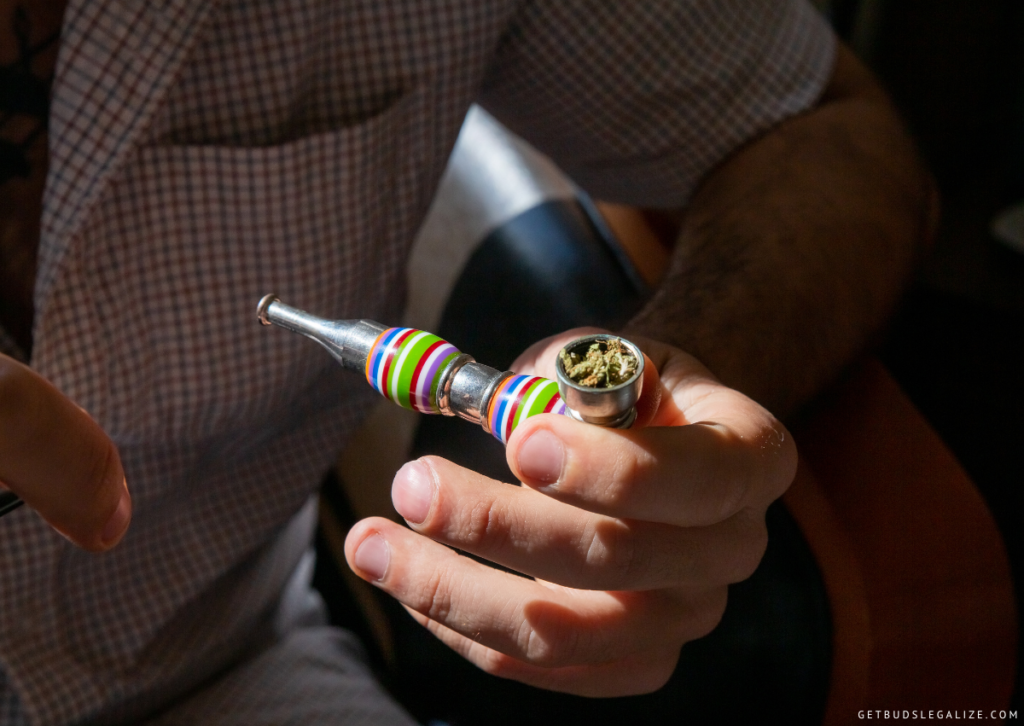Is It Possible to Overdose on Marijuana? Symptoms & Treatments



Is It Possible to Overdose on Marijuana? Symptoms & Treatments
Marijuana, also known as weed or cannabis, is a popular drug that can have various effects on the mind and body. Some people use marijuana for medical purposes, such as pain relief or reducing seizures. Others use it for recreational purposes, such as relaxation or euphoria. But is it possible to overdose on marijuana? What does a marijuana overdose look like? And how can you prevent or treat it?
What Is A Marijuana Overdose?
A marijuana overdose is not the same as an overdose of other drugs, such as opioids or stimulants. To date, there have not been any reported deaths resulting solely from marijuana use, according to the Centers for Disease Control and Prevention (CDC). However, that does not mean that marijuana is harmless or that you can't overdo it or have a bad reaction to it.
A marijuana overdose occurs when you consume more marijuana than your body can handle, resulting in serious health problems and uncomfortable symptoms. These symptoms can vary depending on the amount and potency of the marijuana, the method of consumption, your tolerance level, and other factors.
What Are The Signs of Marijuana Overdose?

Here are some signs that someone may be suffering from marijuana overdose or intoxication:
- Extreme anxiety or panic attacks: Marijuana can cause feelings of fear, nervousness, or dread that are out of proportion to the situation. These feelings can be overwhelming and interfere with normal functioning.
- Psychotic reactions, such as losing touch with reality, becoming paranoid, or having hallucinations or delusions: Marijuana can alter the way one perceives oneself and the world, leading to distorted thoughts, beliefs, or sensations that are not based on reality. These can be frightening and dangerous for oneself and others.
- Impaired judgment, perception, and coordination can lead to injuries or accidents: Marijuana can affect one's ability to think clearly, react quickly, and control one's movements. This can increase the risk of making poor decisions, misjudging distances or speeds, or losing balance or coordination. These can result in falls, crashes, burns, cuts, or other injuries.
- A fast heart rate: Marijuana can stimulate the heart and make it beat faster than normal. This can strain the heart and increase the chance of having a heart attack or stroke.
- Uncontrollable shaking or seizures: Marijuana can affect the nervous system and cause involuntary muscle spasms or convulsions. These can be painful and scary and may require medical attention.
- Pale skin color: Marijuana can reduce blood flow to the skin and make it look pale or bluish. This can indicate a lack of oxygen in the body and may signal a serious condition.
- Unresponsiveness: Marijuana can cause one to lose consciousness or become unresponsive to stimuli. This can mean that the brain is not getting enough oxygen and may suffer permanent damage.
- Sudden high blood pressure with a headache: Marijuana can raise blood pressure and cause a throbbing headache. This can indicate a hypertensive crisis, which is a medical emergency that can lead to organ failure or death.
How Long Do The Symptoms of A Marijuana Overdose Last?
The duration of the symptoms of an overdose of marijuana depends on several factors, such as the amount and potency of the marijuana, the method of consumption, and your metabolism.
In general, the effects of smoked marijuana may last for 1 to 3 hours, while the effects of edibles (marijuana-infused food or drinks) may last for several hours. Edibles are more likely to cause a negative reaction because they take longer to kick in and are harder to dose accurately.
Some people may also experience a "weed hangover" the following day, which can include symptoms such as:
- Fatigue or lethargy.
- Headache.
- Dry mouth.
- Dry eyes.
- Dizziness.
- Mood changes.


How Is Marijuana Overdose Treated?

There is no specific antidote for an overdose of marijuana, however, some possible treatments can include:
- Monitoring vital signs and providing supportive care.
- Giving fluids to prevent dehydration.
- Giving medications to lower blood pressure or heart rate.
- Giving medications to reduce nausea or vomiting.
- Giving medications to calm anxiety or psychosis.
- Giving oxygen or ventilation to support breathing.
The best way to treat a marijuana overdose is to prevent it from happening in the first place.
Marijuana Overdose Recovery Time:
The recovery time from a marijuana overdose varies depending on the individual and the circumstances. Some people may recover quickly and resume their normal activities within hours or days. Others may need more time and support to heal from the physical and psychological effects of the overdose.
Some factors that can affect the recovery time include:
- The amount and potency of the marijuana consumed.
- The method of consumption (smoking vs. edibles).
- The presence of other substances in the system (alcohol, prescription drugs, etc.).
- The pre-existing health conditions or mental disorders of the individual.
- The availability and quality of medical care and follow-up services.
Some people may benefit from seeking professional help. A substance abuse counselor or therapist can help them address the underlying causes of their marijuana use, provide coping skills and strategies to prevent future overdoses and refer them to other resources if needed.
How Can A Marijuana Overdose Be Prevented?

1. Know your limits and start low and go slow: Don't consume more than you can handle and wait for the effects to kick in before taking more.
2. Avoid using high-potency products that contain high levels of THC (the chemical that makes you feel "high" or impaired): THC concentrations in marijuana have increased in recent years, making the drug more dangerous and unpredictable.
3. Avoid using edibles if you are not familiar with them or if you have a low tolerance: Edibles can take longer to kick in and have stronger and longer-lasting effects than smoked marijuana. If you do use edibles, start with a small dose (such as 5 mg of THC or less) and wait at least 2 hours before taking more.
4. Avoid mixing marijuana with alcohol or other drugs: This can increase the risk of negative interactions and adverse effects, such as impaired driving, increased heart rate, or psychosis.
5. Use marijuana in a safe and comfortable environment with people you trust: Avoid using marijuana in unfamiliar or stressful situations or with people who may pressure you to use more than you want to.
6. Seek help if you have a problem with marijuana use: If you feel that you are using marijuana too often, too much, or in a way that interferes with your life, you may have a substance use disorder. A substance use disorder is a medical condition that can be treated with professional help.


Final Thought
We hope this blog post has answered some of your questions about marijuana overdose. Remember, marijuana is not a harmless substance and can have serious consequences if used excessively or irresponsibly. Be safe and smart when using marijuana and consult your doctor if you have any concerns or questions.
FAQs about overdose on marijuana
Can pets get a marijuana overdose?
Yes, pets can get a marijuana overdose if they ingest or inhale marijuana products. Pets are more sensitive to THC than humans and can experience severe symptoms, such as:
- Lethargy.
- Loss of balance.
- Low blood pressure.
- Low body temperature.
- Low heart rate.
- Coma.
If you suspect that your pet has a marijuana overdose, contact your veterinarian immediately.
What’s the difference between smoking and eating an edible with marijuana in it?
THC, or tetrahydrocannabinol, is the main psychoactive compound in marijuana that makes you feel high. When you smoke marijuana, THC enters your bloodstream quickly and reaches your brain in minutes. The effects can last for a few hours, depending on how much you smoke and how potent the marijuana is.
When you eat an edible with THC in it, such as a brownie or a gummy, the THC has to go through your digestive system before it reaches your bloodstream. This can take anywhere from 30 minutes to 2 hours, depending on how much you eat and what else is in your stomach. The effects can last for several hours, and they can be more intense and unpredictable than smoking.
Because edibles take longer to kick in and last longer, it is easier to consume more THC than you intended. This can lead to unpleasant symptoms such as anxiety, paranoia, confusion, nausea, drowsiness, or even hallucinations. These symptoms are not life-threatening, but they can be very uncomfortable and scary.
How to know if you’ve taken too much THC?
There is no known lethal dose of THC, so technically you cannot overdose on marijuana in the same way that you can overdose on opioids or alcohol.
However, taking too much THC can still have negative consequences for your health and well-being. For example, taking too much THC can impair your judgment, coordination, and reaction time, which can increase your risk of accidents or injuries. Taking too much THC can also worsen some mental health conditions, such as psychosis or schizophrenia.
Is there a difference between taking too much CBD or too much THC?
CBD, or cannabidiol, is another compound in marijuana that has many benefits and health effects. Unlike THC, CBD does not get you high or cause any psychoactive effects. CBD can actually counteract some of the negative effects of THC, such as anxiety or paranoia. CBD can also help with pain, inflammation, seizures, insomnia, and other conditions.
Taking too much CBD is unlikely to cause any serious harm, but it may cause some mild side effects such as dry mouth, drowsiness, or diarrhea. Taking too much CBD may also interfere with some medications that you are taking, so you should consult your doctor before using CBD products.
How much marijuana is OK to take?
How much marijuana is OK to take depends on many factors, such as your body weight, metabolism, tolerance, medical condition, and personal preference. There is no one-size-fits-all answer to this question.
The best way to find out how much marijuana works for you is to start low and go slow. This means that you should start with a small dose of marijuana and wait for the effects to kick in before taking more. You should also pay attention to how you feel and adjust your dose accordingly.
Marijuana can be a useful and enjoyable substance for many people, but it can also have some risks and drawbacks. It is important to be informed and responsible when using marijuana products. If you have any questions or concerns about marijuana use, you should talk to your doctor or a trusted source of information.
How to find help for a marijuana overdose?
If you or someone you know experiences a marijuana overdose, you should seek medical attention as soon as possible. Some steps that can be taken to find help are:
- Call 911 or your local emergency number if the person is unconscious, has trouble breathing, has chest pain, or shows signs of severe mental distress.
- Contact a poison control center at 1-800-222-1222 for advice on how to handle the situation.
- Look for a nearby hospital, clinic, or urgent care center that can provide treatment and support.
- Reach out to a trusted friend, family member, or counselor who can offer emotional support and guidance.
Can you die from a marijuana overdose?
No, you cannot die from a natural cannabis overdose. However, you can experience unpleasant and potentially harmful effects that may require medical attention.
What are the statistics on marijuana overdose death?
According to the Centers for Disease Control and Prevention (CDC), there have been no reported cases of death directly caused by a marijuana overdose in the United States. However, there have been cases of death indirectly related to marijuana use due to accidents, injuries, infections, or interactions with other substances. Therefore, it is important to be aware of the risks and consequences of using marijuana excessively or irresponsibly.
Can you get addicted to marijuana?
Yes, you can get addicted to marijuana. Marijuana addiction, also known as cannabis use disorder, is a condition that affects about 9% of people who use marijuana. Marijuana addiction is characterized by:
1. Craving marijuana.
2. Using more marijuana than intended.
3. Having difficulty cutting down or quitting marijuana.
4. Spending a lot of time and money on obtaining and using marijuana.
5. Neglecting other responsibilities and interests because of marijuana use.
6. Experiencing withdrawal symptoms when stopping marijuana use, such as:
- Irritability.
- Anxiety.
- Restlessness.
- Insomnia.
- Decreased appetite.
- Headaches.
https://getbudslegalize.com/is-it-possible-to-overdose-on-marijuana/
Commenti
Posta un commento